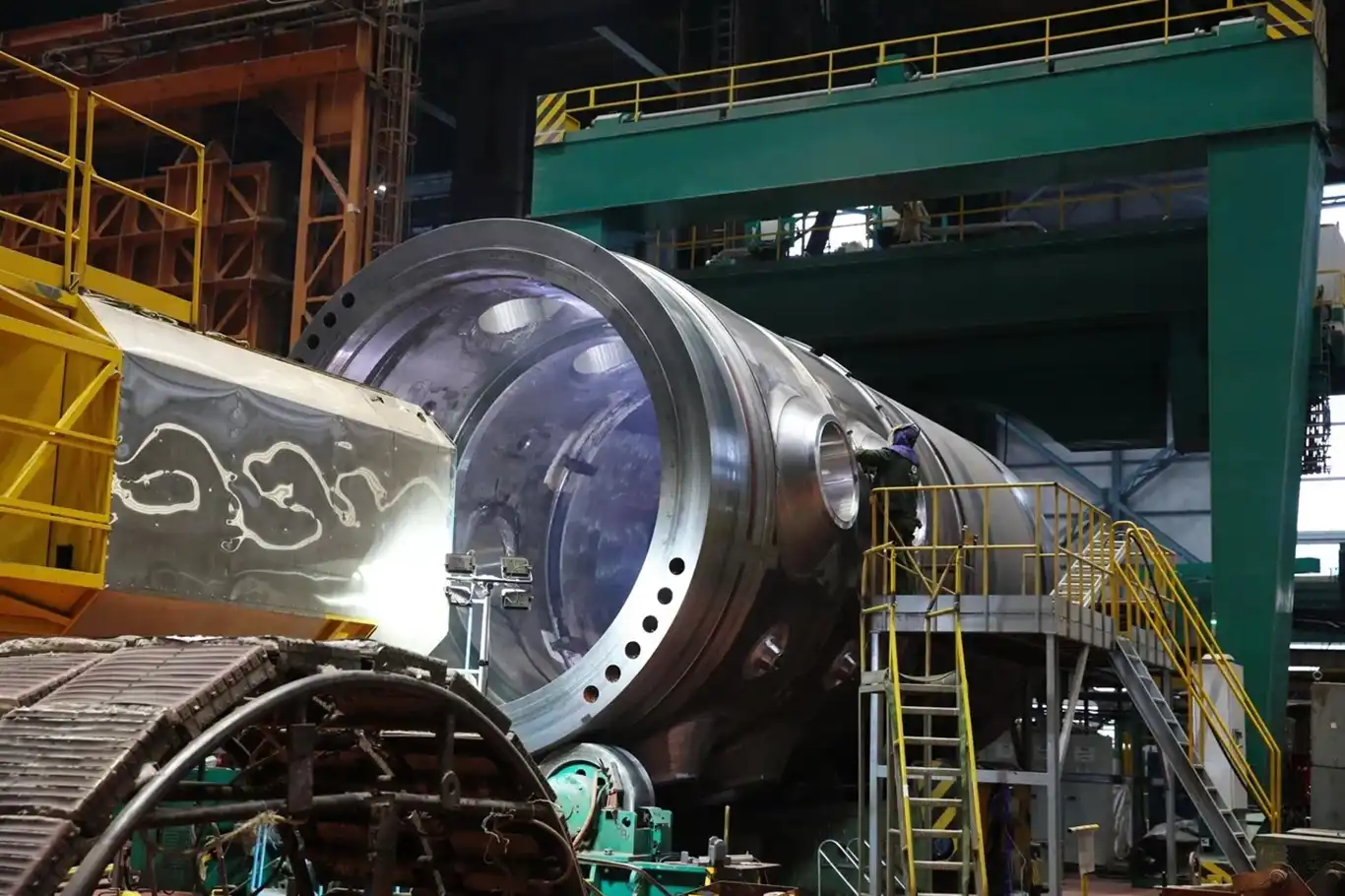Türkiye launches national initiative to develop indigenous nuclear reactors


Türkiye has announced a major national initiative aimed at developing domestically produced nuclear reactors, marking a significant milestone in the country’s energy strategy.
The program, called the “Domestic Nuclear Reactor Development Call,” was unveiled on Sunday by Industry and Technology Minister Mehmet Fatih Kacır, who emphasized its role in strengthening energy security, reducing dependence on foreign energy, and supporting Türkiye’s net-zero emissions targets.
The announcement comes as Türkiye prepares to launch its first nuclear power plant, Akkuyu, located in the Mediterranean region. Constructed by Russia’s Rosatom at a cost of $20 billion, the 4.8-gigawatt (GW) facility is expected to make Türkiye one of the few nations with civil nuclear energy. Once fully operational, the four-reactor plant will generate approximately 10% of Türkiye’s electricity, positioning Akkuyu as the third-largest nuclear pipeline globally, according to the Global Energy Monitor (GEM).
Minister Kacır highlighted that the new initiative aligns with Türkiye’s National Technology Initiative, which seeks to meet growing energy demands across strategic sectors, including artificial intelligence, defense, chemistry, and metallurgy, through locally sourced, carbon-free, and reliable energy. “Türkiye is charting its own course in nuclear energy technologies, reinforcing its independence and national strength,” Kacır said on the social media platform NSosyal.
The program will be supported by the Turkish Energy, Nuclear and Mining Research Agency (TENMAK), the Scientific and Technological Research Council of Türkiye (TÜBITAK), and Turkish universities. It aims to leverage domestic industrial capabilities to develop advanced nuclear reactors, with applications for the initiative open until December 31, 2025.
Türkiye’s nuclear ambitions extend beyond Akkuyu. The first 1,200-megawatt (MW) unit of the plant is expected to come online soon, with the remaining three units scheduled for 2026, 2027, and 2028. Officials estimate that at least eight additional reactors and 5 GW of small modular reactors (SMRs) will be needed to further enhance energy security and ensure affordable electricity. Plans are also underway to build two more nuclear plants in the northwestern Thrace region and the Black Sea region of Sinop, aiming to achieve 7.2 GW of nuclear capacity by 2035 and 20 GW by 2050.
This initiative reflects Türkiye’s commitment to a sustainable, self-reliant energy future and signals the country’s growing role in the global nuclear energy sector. By investing in domestic nuclear technology, Türkiye aims to ensure a stable, carbon-free energy supply while bolstering its technological and industrial capabilities. (ILKHA)
LEGAL WARNING: All rights of the published news, photos and videos are reserved by İlke Haber Ajansı Basın Yayın San. Trade A.Ş. Under no circumstances can all or part of the news, photos and videos be used without a written contract or subscription.
Turkish President Recep Tayyip Erdoğan was formally presented with Togg’s latest electric vehicle model, the T10F, during a special ceremony held at the Dolmabahçe Presidential Office in Istanbul on Saturday.
The United Arab Emirates has entered the global artificial intelligence race with the launch of K2 Think, a low-cost reasoning model developed by the Mohamed bin Zayed University of Artificial Intelligence (MBZUAI) in Abu Dhabi.
The tests will serve as a precursor to the companies' plan to launch a robot taxi service in 2026.